Forty-two per cent of adults drank sports or energy drinks or shots in the three months to May 2019, according to Mintel’s latest report on the sector. Most of these consumers were young men, many of whom said they drink sports/energy drinks or shots at least once a week.
Not surprisingly, Mintel found that exercise is the most common occasion for drinking both sports drinks (43%) and energy drinks (46%). However, manual work/labour and long-distance driving/travelling, which demand a high level of physical energy and concentration respectively, come next, while gaming is the top consumption occasion for young men.
Competition from other drinks is obviously the biggest barrier to usage and Mintel’s report states that sports drinks manufacturers need to convince non-users that they could benefit from drinking their products. It says competition from water in particular is a problem. Meanwhile, with older consumers, their preference for hot coffee and tea is the most common reason for not drinking energy drinks.
In its research, Mintel found that the perceived high sugar content was another barrier to consumption. Of course manufacturers have addressed this with their reformulations of lower/no sugar variants, however Mintel believes they need to drive higher awareness of their availability. Interestingly, Mintel found that while diet variants are popular many consumers view sugar as an essential ingredient in a sports or energy drink, meaning regular, full-sugar versions earn their space on shelves.
The research found a high level of interest in flavour innovation among current sports/energy drink consumers, with exotic/tropical fruit flavours garnering the most interest. And interest in coffee and tea flavours points to an opportunity for brands to tap into the ready-to-drink (RTD) coffee and tea trend.
Adrian Troy, marketing director at Barr Soft Drinks, agrees that consumers are increasingly opting for flavoured variants when choosing an energy drink, with flavoured energy now accounting for 34% of the mainstream energy market and growing faster than original energy (IRI). "Flavour is central to all of our energy products, from the iconic flavour of IRN-BRU, to the range of 11 Rockstar flavours and the unique Caribbean flavours of KA Reload. Rockstar’s range of 11 flavours is a key motivator for shoppers to buy the drink as it doesn’t define how an energy drink should taste. Among core energy drinkers, Rockstar is sought as a ’better tasting’ energy drink. The top two fastest-selling flavoured big cans are Rockstar Punched Guava and Xdurance."
Another brand that is doing very well with flavours is Lucozade Energy, whose flavours range has already contributed £72m-worth of sales to the energy category (IRI data). Matt Gouldsmith, channel director, wholesale at Lucozade Ribena, says this shows just how important it is for retailers to carry a diverse selection of flavours in their chillers.
"Two of our latest launches have been successful in building on this trend, with Lucozade Energy Apple Blast and Lucozade Energy Watermelon and Strawberry Cooler now worth over £11m combined."
With coffee flavours, Coca-Cola European Partners (CCEP) is doing well with its Espresso Monster range, which has been designed to appeal to both coffee drinkers and energy drink lovers. The range was launched last year and, according to Nielsen data, is already worth some £5.5m. The latest addition to the line-up is Espresso Salted Caramel Monster which joins Espresso & Milk and Vanilla Espresso. The three-strong line-up is now available in a new £1.99 price-marked pack.
CCEP says the cold coffee drinks enable retailers to capitalise on the increasingly popular RTD coffee sector, currently worth £139m and growing by 32% (Nielsen data).
Simon Harrison, vice president, commercial development at CCEP GB, says: "The range delivers a real point of difference for retailers, combining the functionality of an energy drink with cold coffee, two soft drink segments that are delivering strong growth in GB.
"The Salted Carmel flavour profile is already popular with consumers in coffee shops and across other food and drink categories. We’re therefore confident that the new great- tasting variant will help to fuel further growth of the Espresso Monster range, delighting Monster’s core fan base while also recruiting new drinkers."
Brand loyalty is high in the category with 76% of people Mintel interviewed saying that they usually stick to the same brand. Often that brand is Red Bull, and Mark Bell, strategy and planning manager at Red Bull UK, says that not only is Red Bull energy drink 250ml the company’s best-selling SKU, it’s also the single most valuable soft drink in the UK. "Red Bull energy drink 250ml is worth over £144m and continues to grow year-on-year (IRI data). "We believe this is the perfect pack size for ’functional energy’ and it fits most consumers’ energy needs, containing the same amount of sugar as a glass of apple juice and the same amount of caffeine as a cup of coffee."
However, Bell says offering choice is at the centre of the Red Bull ideology: "As consumers increasingly pick up a sugar-free alternative, the Red Bull range has been expanded to include a sugar-free variant of every pack. This has seen Red Bull launch Sugarfree 473ml, Tropical Sugarfree Edition, along with Coconut Berry Sugarfree Edition. These packs have contributed over £61m to the category in the latest year, which is the highest ever amount of Sugarfree variants sold by Red Bull. In the last year, Red Bull sold 19.7% more Sugarfree volume with the variants bringing in 704,000 new buyers (Kantar data)."
Another soft drinks brand with a fiercely loyal following is, of course, Coca-Cola, which can now be seen in the energy drinks section thanks to the launch, last April, of Coca-Cola Energy. According to Nielsen data, the drink is already worth £5.3m. It was the fourth biggest new soft drink of 2019 and 60% of its sales were incremental to the energy and cola categories.
At the time of its launch, Amy Burgess, senior trade communications manager at CCEP, said the energy drink had been designed to "complement the upbeat and busy lifestyle enjoyed by many of our young adult consumers, combining the great Coke taste people already know and love with caffeine from natural-derived sources, guarana extracts and B vitamins".
IRN-BRU too has a loyal following so it should come as no surprise that the launch of IRN-BRU Energy has been a big success with the drink outperforming its closest competitors since launching in Scotland, and establishing itself as last year’s fastest-selling soft drink in convenience (IRI). Speaking ahead of the drink’s UK roll out, Barr’s Troy said: "UK shoppers love the iconic taste of IRN-BRU, which is currently growing at 9% across England so we are confident that demand for new IRN-BRU Energy will be high."
Another brand that’s new to the energy drinks chiller is Grenade, renowned for its popular Carb Killa range.
Grenade Energy is pitched as a ’healthier alternative’ to a typical energy drink thanks to its use of all-natural caffeine and zero sugar. However, it still packs the same punch as two espressos, with added electrolytes for hydration (including magnesium), and a boost of B vitamins to aid recovery and added BCAAs (branched-chain amino acids) but no artificial preservatives or colours.
CEO and co-founder, Alan Barratt, says: "There is no doubt that the sports and energy drinks sector is a large and dominating market but in true Grenade style, we’re offering something different to market, while immersing our brand into the category. Our new flavour-packed energy drink will give consumers the ultimate energy fix that comes at no cost to their healthy and active lifestyle."
It’s fighting talk but already Grenade Energy has competition from CCEP’s recently launched Reign and Barr’s Rockstar XD Power. Both are pitched as ’performance energy’ drinks.
Reign contains 200mg of natural caffeine extracted from green coffee beans but has no sugar or calories. What it does have is a number of ingredients intended to enhance performance, including BCAAs, and L-Arginine, which improves blood flow and stimulates the release of growth hormones.
Rockstar XD Power also contains 200mg of caffeine per can and is complemented by BCAAs. The drink also contains the signature Rockstar B vitamin blend that directly impacts energy levels and brain function. Both of its variants are zero sugar and free from artificial flavours and colours.
CCEP said Reign’s launch would enable retailers to tap into the performance drinks opportunity. The segment is already worth more than $400m in the US and is growing by 41% (Nielsen). The battle for the ultimate energy fix is well and truly underway.
Energy drinks ban is "unscientific"
Plans to ban the sale of energy drinks to teenagers are "unscientific" and "discriminatory", according to the Institute of Economic Affairs (IEA). The IEA’s head of lifestyle economics, Christopher Snowdon, says the plans proposed on the basis that high levels of sugar and caffeine could be damaging to health unfairly target teenagers, while there was a lack of scientific evidence linking the drinks to negative behaviours.
In his report called Vox Pop, Snowdon cites the House of Commons Science and Technology Committee which concluded "the current scientific evidence alone is not sufficient to justify a measure as prohibitive as a statutory ban on the sale of energy drinks to children."
Snowdon says the government’s proposals focus on the levels of sugar and caffeine in energy drinks but many other drinks contain more sugar and caffeine.The report says a can of Red Bull contains 11g of sugar per 100ml which is the same as a can of Pepsi yet Pepsi doesn’t face a ban. And most single-serve coffees sold from coffee shops contain more caffeine than a can of Red Bull.
Carabao enjoys forecourt success
According to an Engage Research taste test carried out last year, twice as many consumers preferred the taste of Carabao Green Apple to Red Bull. As a result, David Butcher, managing director at Carabao UK and Ireland, says the drink is highly incremental, attracting new shoppers to the category with 43% of Carabao sales from shoppers who’d never previously bought an energy drink (Nectar data/Universe Chilled Energy Drinks).
"Stocking Carabao is a great way to entice new shoppers who may have only popped in for fuel, to purchase an energy drink for the journey ahead," he says, adding that there will be "huge" Carabao brand awareness this month and next thanks to the Carabao Cup semis and final.
He advises forecourts to stock up now and then take advantage of the promotions that are available through Spar, Nisa and Costcutter wholesalers during February and March, when 330ml cans will be priced at just 79p (versus the regular rrp of £1.19).
Butcher also advises retailers to use the pos available to them to draw attention to Carabao’s "great taste and lower sugar credentials".
"By following this advice retailers will have the opportunity to replicate the impressive growth rates seen in one forecourt chain, where Carabao unit sales in Q1 2019 grew by 143% vs Q1 2018 (IRI unit sales). This was particularly impressive given the energy drink category sales for this retailer grew by only 7% in the same period.
"We are seeing huge sales growth in our petrol forecourt retailers and we’re keen to build on this success in 2020."
Something to get XITE-ed about
According to Christie Heywood, marketing manager at XITE Energy, their drink provides consumers with a "refreshingly clean" and "clearly better" alternative to other energy drinks that are on the market.
"XITE Energy contains natural caffeine from green coffee beans, cognitive Nootropics and B vitamins to provide the energy that consumers crave, without the unnecessary chemicals they don’t," she says.
The drink has a transparent colour and fruity taste but XITE keeps the five natural fruit flavours that it uses under wraps.
Heywood says excitement surrounding the drink is infectious, and points to Holland & Barrett selling out nationwide across 600 stores within just weeks of the 2019 product launch. Already it is stocked in over 200 independent petrol forecourts across the UK and Heywood says new retail listings are on the horizon.
The brand has featured at numerous motorsport events including Fuel Fest, Autosport International, and Regent Street Motorsport Show. Indeed the brand has strong links to motor racing with one of the directors, Oliver Bennett, racing the XITE Energy rallycross car worldwide in the FIA World Rallycross championships.
"Retailers stocking XITE Energy first, are likely to benefit from the pre-existing consumer demand that is already UK wide. "It’s evident that not all retailers are ready to adapt to new and changing consumer habits, but it’s also quite clear that those who do, are likely to reap the benefits," says Heywood.
The drink is backed by a ’Healthy doesn’t have to be boring’-themed campaign.






















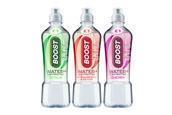

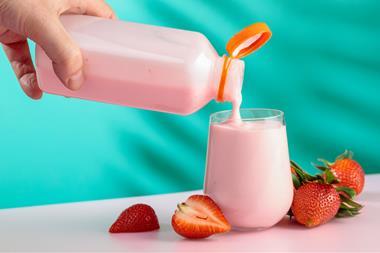
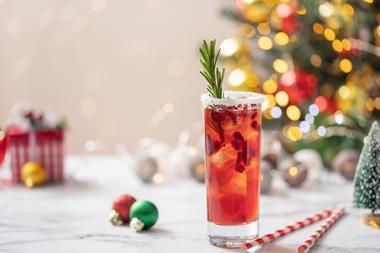
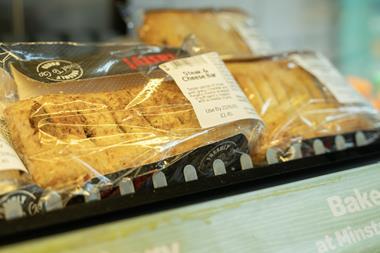
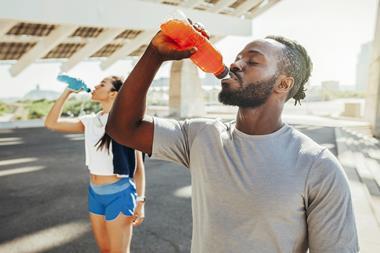
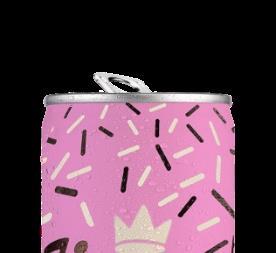
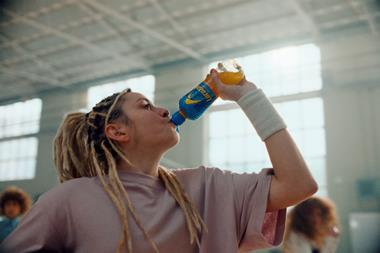
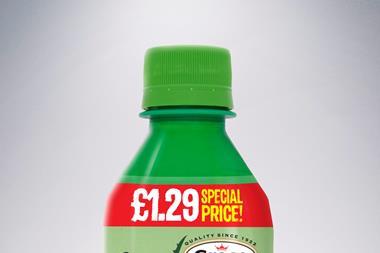
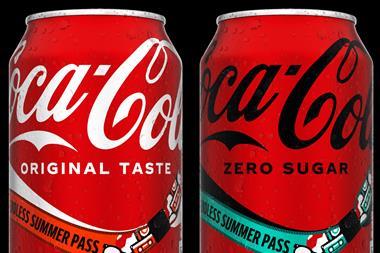
No comments yet